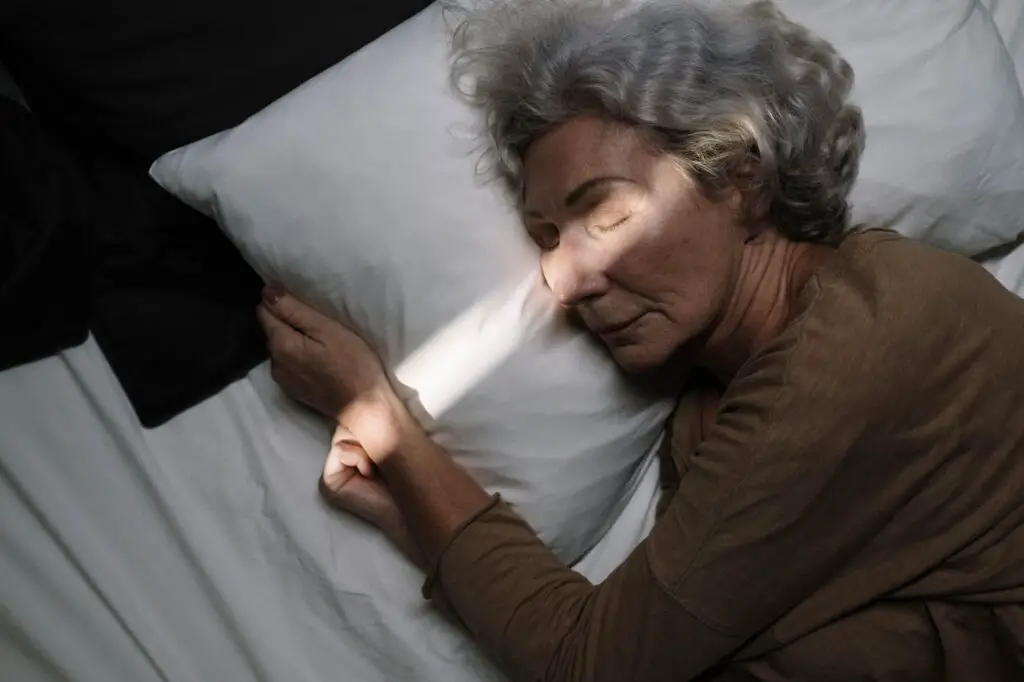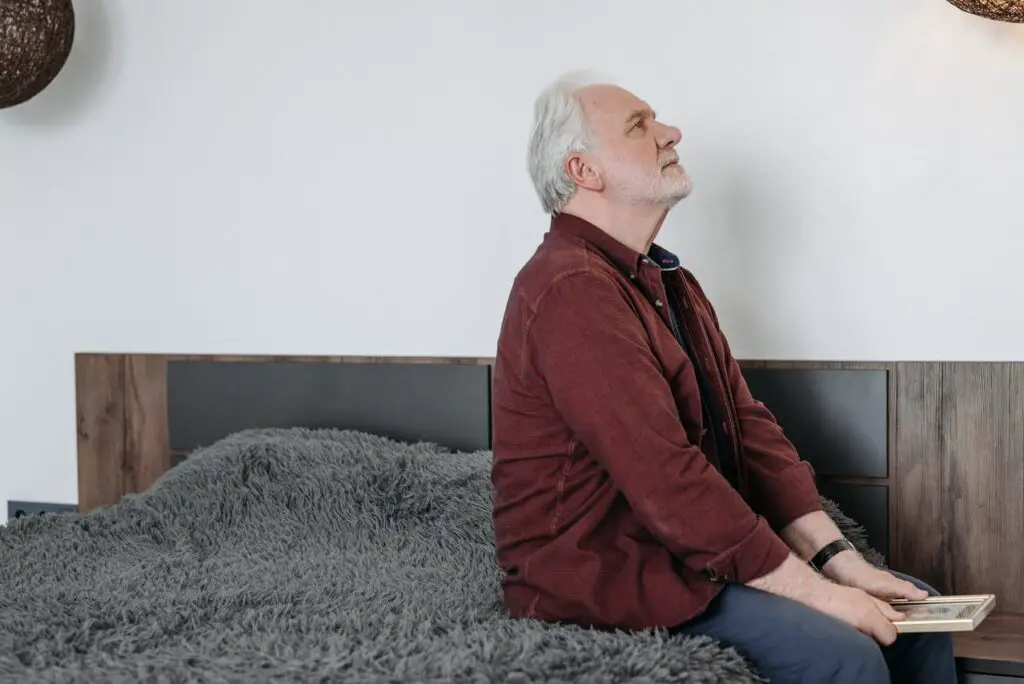For Better Health, Stop Doing These 9 Things in Your 60s

Turning 60 is a major life milestone that comes with both opportunities and challenges. This is the perfect time to reassess your lifestyle habits and make adjustments that can significantly improve your well-being. While it is common to focus on what healthy actions to start—like exercising more or eating better—it is just as important to recognize the habits that no longer serve you. Some things that worked for you in your 30s or 40s might now put you at risk for chronic illness, reduced mobility, or cognitive decline. Knowing what to stop doing can be a powerful step toward a healthier, more vibrant life in your 60s and beyond. Here are nine things you should stop doing in your 60s to support your health, longevity, and quality of life.
1. Stop Ignoring Strength Training

One of the most overlooked aspects of aging well is maintaining muscle mass. As you enter your 60s, muscle atrophy becomes more significant, leading to decreased strength, balance issues, and a greater risk of falls. Many older adults avoid strength training because they think it is only for bodybuilders or younger people, but this could not be further from the truth. Strength training in your 60s, even with light weights or resistance bands, can help preserve bone density, improve posture, and keep you independent longer. Studies have shown that older adults who engage in resistance exercises two or more times per week have better physical function and reduced risk of injury. Building muscle also supports metabolic health, helping to regulate blood sugar and maintain a healthy weight. You do not need to spend hours at the gym—just 20 to 30 minutes of strength-focused exercise a few times a week can make a meaningful difference in how you feel and function.
2. Stop Avoiding the Doctor

When you reach your 60s, skipping routine checkups can be a critical mistake. Many chronic conditions—like hypertension, high cholesterol, type 2 diabetes, and various cancers—become more common with age, and early detection is often the key to successful treatment. Some people delay medical visits due to fear, inconvenience, or the belief that if they feel okay, everything must be fine. However, this logic can be dangerous. Many serious health problems develop silently and do not show obvious symptoms until they are advanced. By seeing your doctor regularly and completing recommended screenings, you increase your chances of catching issues early, when they are most treatable. Preventive health care includes blood tests, physical exams, cancer screenings, hearing and vision tests, and vaccinations. Making these appointments a priority is one of the simplest and most effective ways to protect your health as you age.
3. Stop Eating Like You Did in Your 30s

Your metabolism slows down significantly in your 60s, which means your body needs fewer calories but more nutrients to stay healthy. Unfortunately, many people continue eating the same way they did in their younger years—often consuming too many processed foods, sugary snacks, and oversized portions. This can contribute to weight gain, increased inflammation, and higher risk for heart disease and diabetes. Rather than focusing on restriction, aim to eat smarter. Choose whole, nutrient-dense foods like leafy greens, berries, legumes, nuts, whole grains, lean meats, and fish. Reduce your intake of processed foods, sodium, and added sugars. Pay attention to portion sizes and practice mindful eating, which involves slowing down and savoring your meals without distractions. Drinking water before meals, chewing thoroughly, and listening to hunger cues can help you avoid overeating. Adjusting your diet to match your body’s changing needs will support better digestion, stable energy levels, and long-term health.
4. Stop Underestimating Sleep

Sleep is not a luxury—it is a biological necessity, especially as you age. Many older adults believe that poor sleep is a normal part of getting older, but this mindset can lead to serious health consequences. Sleep deprivation is linked to increased risks of heart disease, cognitive decline, obesity, and weakened immune function. It also affects your mood, memory, and balance, which are crucial for staying active and independent. In your 60s, it is important to aim for seven to eight hours of quality sleep each night. This may require creating a consistent sleep routine, avoiding caffeine and alcohol late in the day, and limiting screen time before bed. A comfortable, quiet sleep environment and regular physical activity can also improve your sleep quality. If you struggle with persistent insomnia, snoring, or daytime fatigue, consult your doctor to rule out conditions like sleep apnea. Prioritizing good sleep is one of the best investments you can make for your long-term health.
5. Stop Skipping Mental Challenges

Mental fitness is just as important as physical fitness, but it is often overlooked in older adults. When routines become repetitive and mental stimulation decreases, your brain can start to slow down. In your 60s, skipping mental challenges can contribute to memory problems and increase your risk for cognitive decline and conditions like dementia. Fortunately, your brain remains capable of growth and change throughout your life—a concept known as neuroplasticity. You can strengthen your brain by engaging in activities that challenge and excite you. Consider learning a new skill, picking up a hobby, playing a musical instrument, solving puzzles, or taking an online course. Reading, writing, and social interactions also stimulate different parts of the brain. The key is to stay curious and keep learning. Regular cognitive engagement improves problem-solving skills, memory, and overall mental sharpness.
6. Stop Letting Stress Go Untreated

Chronic stress is a serious health risk, particularly in your 60s when your body becomes less resilient to its effects. Stress affects every system in the body—it raises your blood pressure, weakens your immune response, disrupts sleep, and increases your risk for depression, heart disease, and memory issues. Unfortunately, many older adults dismiss stress as a normal part of life or believe it is something they just have to endure. That mindset can be harmful. It is important to identify the sources of your stress and take proactive steps to manage them. Techniques such as meditation, deep breathing, yoga, and journaling can be effective. Spending time in nature, staying physically active, and connecting with friends can also lower stress levels. If stress becomes overwhelming or persistent, do not hesitate to talk to a therapist or counselor. Your mental and emotional health deserve as much attention as your physical health.
7. Stop Neglecting Hydration

As you age, your body’s ability to sense thirst declines, making it easier to become dehydrated without realizing it. Dehydration in older adults can lead to fatigue, confusion, urinary tract infections, constipation, and increased risk of falls. Some people also limit fluid intake to avoid nighttime bathroom trips, but this can backfire and cause more serious issues. In your 60s, staying hydrated should be a daily goal. Aim for at least six to eight glasses of water each day, and more if you are active or in hot weather. You can also hydrate through foods with high water content, such as cucumbers, oranges, melons, and soups. Herbal teas and milk contribute to your fluid intake as well. Make hydration a habit by keeping a water bottle nearby and sipping throughout the day. Proper hydration supports digestion, circulation, joint health, and energy levels.
8. Stop Isolating Yourself

Social connection is a vital part of healthy aging, yet many people become increasingly isolated in their 60s. Whether due to retirement, health changes, or the loss of friends and loved ones, social withdrawal can lead to loneliness and depression. Even worse, studies show that social isolation is associated with higher risks of cognitive decline, heart disease, and premature death. Staying socially active improves mood, sharpens memory, and even strengthens the immune system. Make it a point to maintain and grow your social network. Join clubs, attend community events, volunteer, or simply make regular phone calls or video chats with family and friends. If you are introverted or new to a community, start small—say hello to neighbors, join a walking group, or take a class. Social health is just as important as physical health, and nurturing it can bring both joy and longevity.
9. Stop Delaying Preventive Care

Preventive care is one of the most powerful tools you have for maintaining health in your 60s, yet it is often overlooked. Some people assume that if they feel fine, there is no need to see the doctor—but this is a dangerous assumption. Many serious conditions, including cancer, osteoporosis, and heart disease, develop silently and can be detected only through screening. Regular checkups, blood pressure monitoring, cholesterol tests, cancer screenings, and immunizations are essential to catching issues early. Preventive care also includes dental exams, eye exams, and hearing tests. Talk to your doctor about which screenings are appropriate for your age and medical history, and make sure to keep up with your vaccination schedule, including flu shots and shingles vaccines. Being proactive about your health can help you avoid complications and enjoy a longer, more vibrant life.
Final Thoughts

Your 60s can be some of the most rewarding years of your life, but only if you take care of your health with intention and awareness. While adding healthy habits like walking more or eating more vegetables is important, letting go of habits that no longer serve you is just as crucial. By stopping the behaviors that undermine your physical, mental, and emotional well-being, you give yourself the opportunity to thrive well into your 70s and beyond. These changes do not need to happen overnight, but recognizing what to let go of is the first powerful step. Use this list as a guide to reassess your lifestyle and build a healthier foundation for the years ahead. The future is not just about adding years to your life—it is about adding life to your years.
Leave a Reply